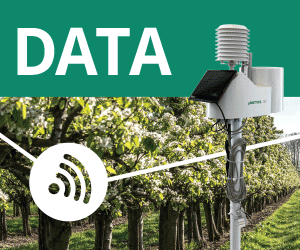We are not alone, farmers across Europe are staging protests. Footage of furious French farmers blocking roads into Paris made it onto the BBC Ten O’clock News at the end of January. The issues are nor unlike ours – unfairness – farmers are overregulated and underpaid.
Here, the Parliamentary debate triggered by the petition asking for amendments to the Grocery Suppliers Code, calling for fairness for farmers, took place in Westminster Hall. Ali Capper reports that she was asked to brief Christina Rees MP, who opened the debate, to ensure that she and the EFRA select committee understood the issues facing British apple and pear growers. Twelve MPs spoke and farming minister Mark Spencer MP replied after two hours of debate. Stories of unfairness were related and concern that the Groceries Code Adjudicator was under-resourced were expressed.
The current review of horticulture is the next vehicle to put our case to Government, but we need action now before too many growers give up. Recent news of large businesses going out of production are a worrying development. We desperately need a national strategy for food and farming. The planned new border control checks for imported plants from the EU from April, are another blow as, for example, 100 million EU-raised strawberry plants are imported each year. It’s obvious that our border posts won’t have the capacity to cope with the sheer volume of imported plants arriving. Log jams will lead to plant material being damaged or destroyed.
It is interesting that UK strawberry production places us at 13th in the world rankings with 131,639 tonnes, just behind Germany, but ahead of Italy and the Dutch. A report from the latest Dutch Strawberry Day highlights the switch there to glasshouse grown strawberries (77%) and considers that new breeding techniques will help the sector in the future. Breeders need to focus on plants that grow using less energy, are tolerant or resistant to pests and diseases, and are suitable for robotic picking.
One of the major contributors to increased costs has been the energy used by growers to store fruit. Post-harvest research has improved the storage life and quality of fruit delivered to customers, but less emphasis has been placed on ways of reducing energy consumption. NIAB’s Scott Raffle explains how Growing Kent & Medway’s Business Sustainability Challenge is funding new research to reduce energy use in stores.
The February issue also includes
- Robots and drones
- Weather stations
- 2023 grape harvest
- Cherry preservation
- Fruit store efficiency
To read more from “The Fruit Grower” subscribe today – find out more here.











